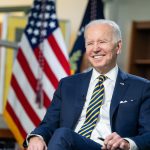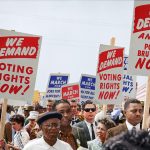On Tuesday morning, the Supreme Court held oral arguments for two significant cases regarding the Biden administration’s student loan debt relief plan, which amounts to $400 billion. As per the plan, non-Pell Grant recipients could have their student loan debts cancelled up to $10,000, whereas Pell Grant recipients could have up to $20,000 of their debts cancelled under the 2003 HEROES Act. The act enables the education secretary to modify or waive provisions of student financial assistance programs during a national emergency to ensure that recipients don’t suffer financially.
During more than three hours of oral argument, conservative SCOTUS justices repeatedly questioned whether the Education Department had legal authority to discharge federal student loan debt to help borrowers recover economically from Covid-19. https://t.co/zDsRa5LPo2
— POLITICO (@politico) February 28, 2023
During the Biden v. Nebraska case, the Department of Justice Solicitor General Elizabeth B. Prelogar represented the Biden administration and contended that the plaintiffs didn’t have any direct injuries due to the Biden relief plan. On the other hand, Missouri argued that its Missouri Higher Education Loan Authority, a student loan servicer owned and established by the state, would lose 40% of its revenue if federal loans were forgiven. However, Prelogar countered the claim, stating that Missouri would not suffer any direct harm as MOHELA is a distinct legal entity that can file a lawsuit under its name.
During the Department of Education v. Brown case, the plaintiffs’ representative, Michael Connolly, contended that standing could be justified if there is even a slight possibility of the plaintiffs receiving relief. The plaintiffs aim to revoke Dr. Secretary Cardona’s actions under the HEROES Act, enabling the administration to review a student loan forgiveness plan via the correct channel, the Higher Education Act. They anticipate being eligible for more financial assistance as a result of the reevaluation.
During the hearing, Justice Sotomayor criticized the lawsuit, deeming it as “totally illogical.” Chief Justice Roberts also raised concerns regarding whether Congress intended “waive or modify” to permit complete debt cancellation. Meanwhile, Justice Kavanaugh expressed his skepticism towards debt relief, questioning its recent inclusion in the public policy agenda under pandemic relief.
The Biden administration’s student loan debt relief plan has been met with much controversy and criticism from conservative politicians and pundits who argue that it is an overreach of executive power and an unfair use of taxpayer money. The upcoming rulings by the Supreme Court are set to greatly influence the trajectory of student loan debt relief in the United States. The Biden administration’s efforts to circumvent Congress and implement their own policies through executive authority are raising concerns about the potential violation of the constitutional principle of separation of powers. It is also concerning that this plan could potentially leave some borrowers worse off than they were before, while others receive more relief than they are entitled to. It is important that the Supreme Court make a decision that is fair and just for all borrowers and upholds our nation’s laws and principles.
Source: The Daily Caller




